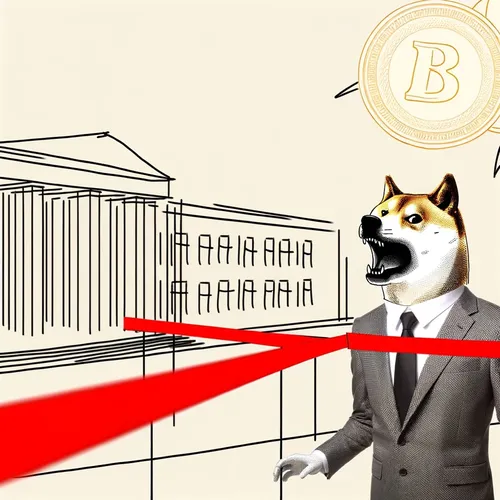DOGE: Trump and Musk Revolutionize Government Efficiency with Controversial Billion Dollar Spending Cuts and Radical Reforms
- Author
- Quiet. Please
- Published
- Tue 17 Jun 2025
- Episode Link
- https://www.spreaker.com/episode/doge-trump-and-musk-revolutionize-government-efficiency-with-controversial-billion-dollar-spending-cuts-and-radical-reforms--66594317
Listeners, today's hot topic comes straight from Washington, where the Department of Government Efficiency—DOGE for short—has turned bureaucratic reform into a national spectacle. Launched by President Trump on January 20, 2025, and spearheaded by Elon Musk, DOGE's stated mission is to modernize federal operations, cut bloated spending, and shake up the nation's bureaucracy[1][2][5].
DOGE's headlines are as bold as its "Bureaucracy Barking Mad?" catchphrase. Since its inception, DOGE claims to have saved over $1 billion, and independent estimates suggest its savings could ultimately reach $180 billion by dismantling agencies, canceling contracts, and aggressively targeting what it deems wasteful spending[2][5]. Much of the early savings came from halting diversity, equity, and inclusion contracts, a move lauded on DOGE's own "Agency Deregulation Leaderboard" but fiercely criticized by consumer advocates and Democratic lawmakers[5]. With Musk at the helm, layoffs and contract terminations have rippled across federal and state agencies, hitting small businesses and vulnerable communities hardest[2].
Supporters praise DOGE for reigning in government outlays as the federal debt has soared past $36 trillion. President Trump and Elon Musk have insisted these moves are exactly what Americans voted for: disruptive change, government downsizing, and fiscal discipline[5]. Yet, DOGE's approach has drawn intense scrutiny. Lawsuits are mounting, opponents warn of constitutional crises, and watchdogs are troubled by DOGE's rapid access to Treasury systems and sensitive American data[2][5].
Intriguingly, DOGE operates in a legal gray zone. The Supreme Court recently granted it an exemption from public disclosure via the Freedom of Information Act, and while Musk claims unprecedented transparency, critics see a lack of oversight[2]. Meanwhile, the DOGE model is echoing in state governments nationwide, where local legislatures launch their own efficiency commissions—some with Musk-inspired branding[3].
Whether DOGE delivers lasting benefits or just barking bureaucracy remains to be seen. One thing is clear: in 2025, government efficiency is making more noise—and more cuts—than ever before.
